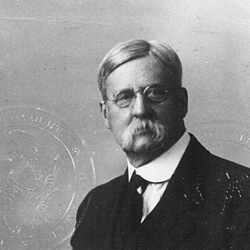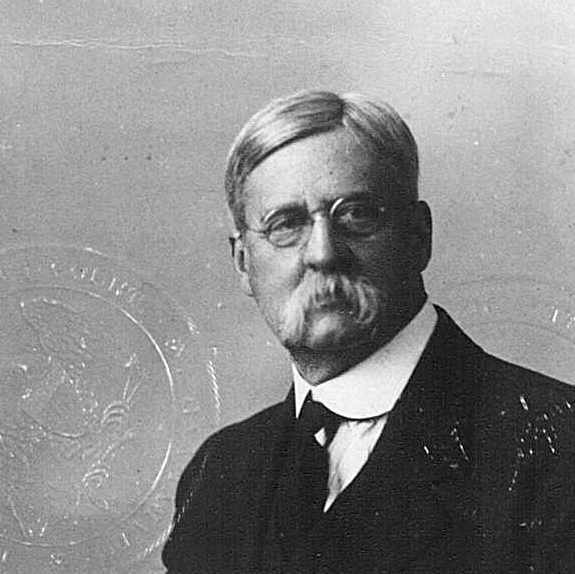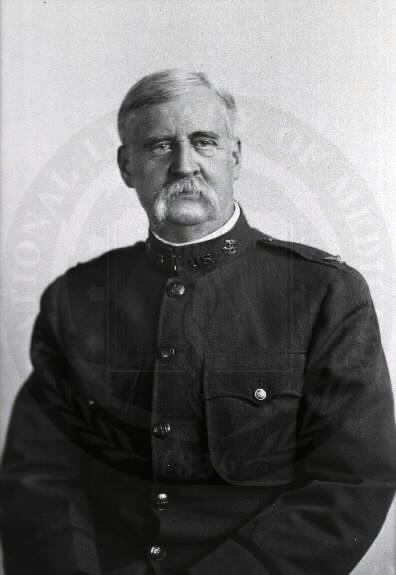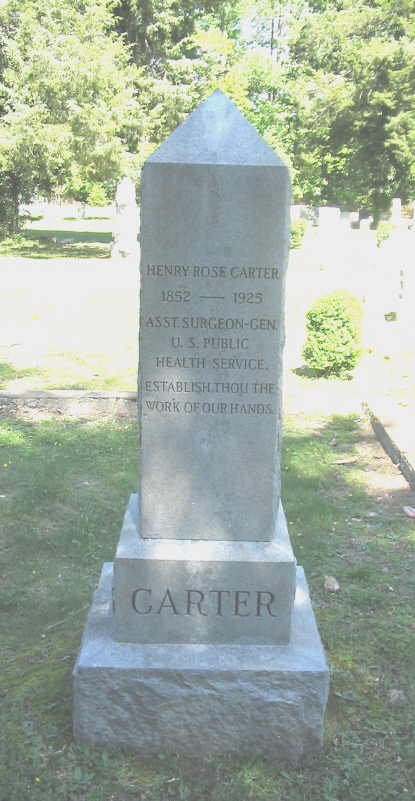For the next 20 years, he served along the Gulf Coast of Louisiana. In 1898, he was called to the two small towns of Orwood and Taylor, Mississippi to investigate a yellow fever outbreak. He meticulously documented exposure to cases and recorded the timing of every case. The Yellow Fever Board had the good fortune of Carter's assignment to Havana in 1899 as Chief Quarantine Officer for the Marine Hospital Service. Dr. Carter served as director of hospitals in the Panama Canal Zone from 1904 to 1909. In 1915 he was commissioned Assistant Surgeon General of the Public Health Service by a special act of Congress. He worked with the Rockefeller Foundation, was a special advisor to the Peruvian government, and served as a member of various health boards. In 1904, Henry Rose Carter and Carlos Finlay were nominated for the Nobel Prize in Medicine by Sir Ronald Ross, who in 1898 had shown that malaria was transmitted by mosquitoes.
For the next 20 years, he served along the Gulf Coast of Louisiana. In 1898, he was called to the two small towns of Orwood and Taylor, Mississippi to investigate a yellow fever outbreak. He meticulously documented exposure to cases and recorded the timing of every case. The Yellow Fever Board had the good fortune of Carter's assignment to Havana in 1899 as Chief Quarantine Officer for the Marine Hospital Service. Dr. Carter served as director of hospitals in the Panama Canal Zone from 1904 to 1909. In 1915 he was commissioned Assistant Surgeon General of the Public Health Service by a special act of Congress. He worked with the Rockefeller Foundation, was a special advisor to the Peruvian government, and served as a member of various health boards. In 1904, Henry Rose Carter and Carlos Finlay were nominated for the Nobel Prize in Medicine by Sir Ronald Ross, who in 1898 had shown that malaria was transmitted by mosquitoes.
Family Members
Sponsored by Ancestry
Advertisement
Records on Ancestry
Advertisement










